The evolution of a beer can: From simple to elementary
Categories: History
By Pictolic https://pictolic.com/article/the-evolution-of-a-beer-can-from-simple-to-elementary.htmlJanuary 24 is a significant day for beer connoisseurs. 88 years ago, the foam drink first appeared on sale in a metal jar. The American brewery Gottfried Krueger Brewing Company has released a test batch of canned "Krueger Cream ale" in the city of Richmond. The success of the new product turned out to be stunning: by the summer, the company had increased sales five and a half times.
Of course, over the years, the appearance of a beer can has changed significantly. Let's go through the main evolutionary milestones.
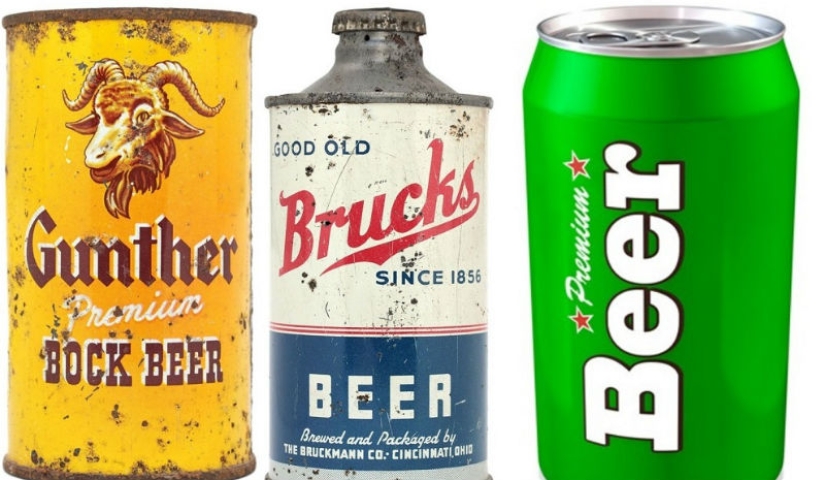
The main advantage of an iron can over a bottle is ease of transportation. Banks can be stacked without fear that pits on the roads will spoil most of the goods. It is not surprising that by the end of 1935, 23 American plants had already used the innovative method of bottling.
The fruit of his labors was the valve-opener. Frase took out a patent and sold the rights to the packaging company Alcon. The beer of the Pittsburgh Brewing Co company, the first to enter the market with such a device, made a real sensation. By 1965, more than 75% of all cans were equipped with Frase's invention.
In 1975, engineer Daniel Kudzik came up with a variant of the petal, which remained on the lid after opening. In fact, nowadays banks are made almost the same as Kudzik suggested.
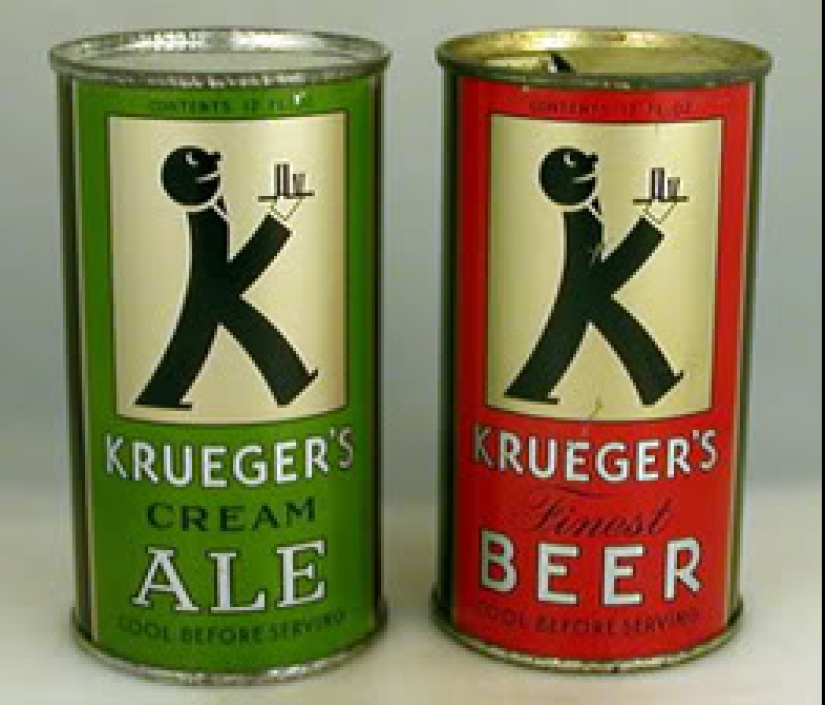
The innovation of the Kruger brewery, in fact, was no different from an ordinary tin can. At first, the beer was opened with an ordinary can opener and the contents were poured into a glass. Then they came up with a special device that could pierce a hole in the steel lid. The instructions were placed on the label.
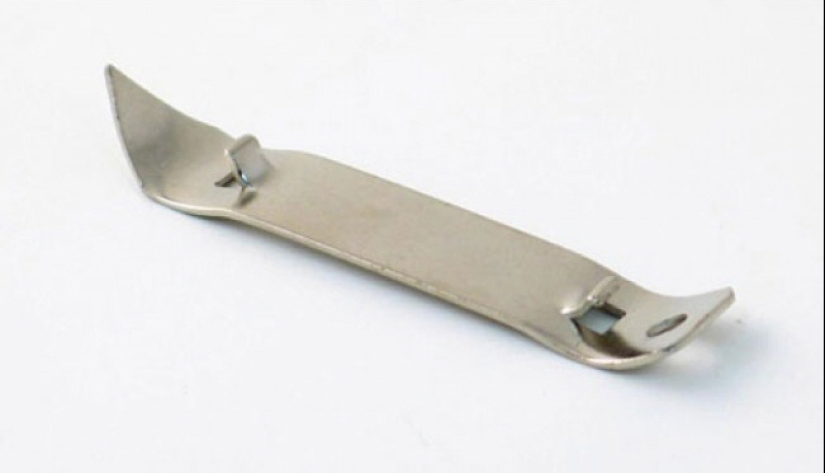
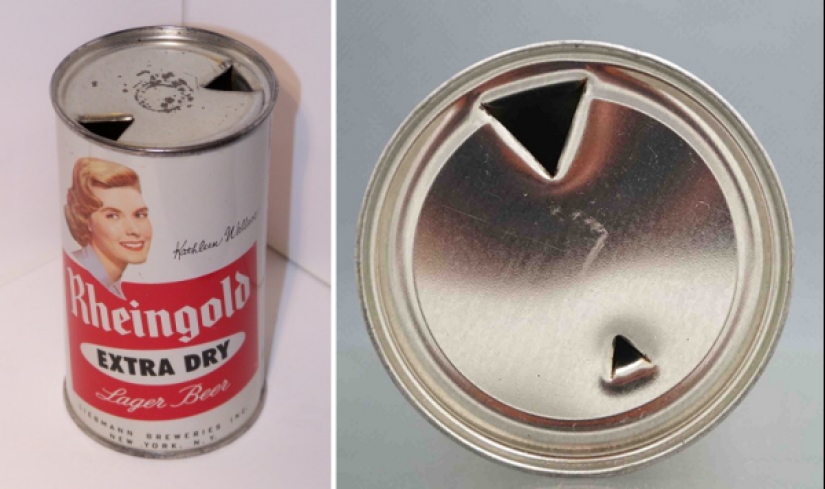
At the end of the 40s, banks began to be made seamless, and Gluek developed a new design: the upper part appeared in the form of a funnel with a unscrewing lid.
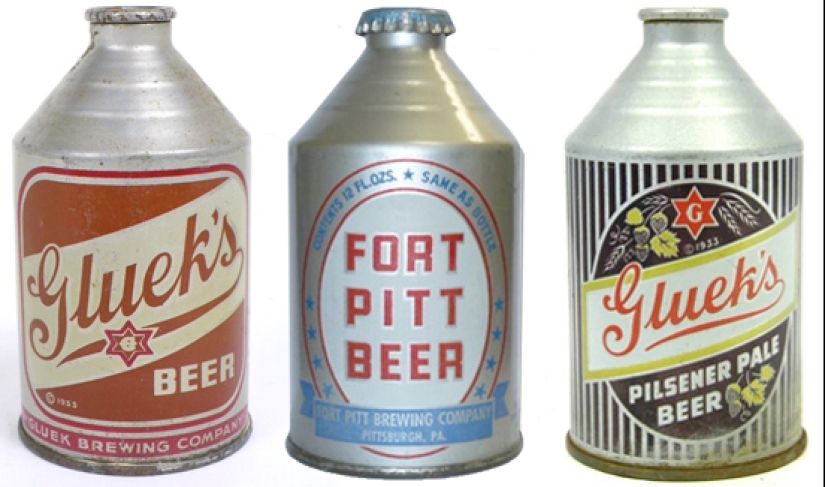
It was much easier to open such a jar, but this model had a significant drawback. It was no longer possible to put one jar on top of another during transportation. In 1955, the Pabst brewery solved this problem by fitting the lid directly to the jar and abandoning the funnel.
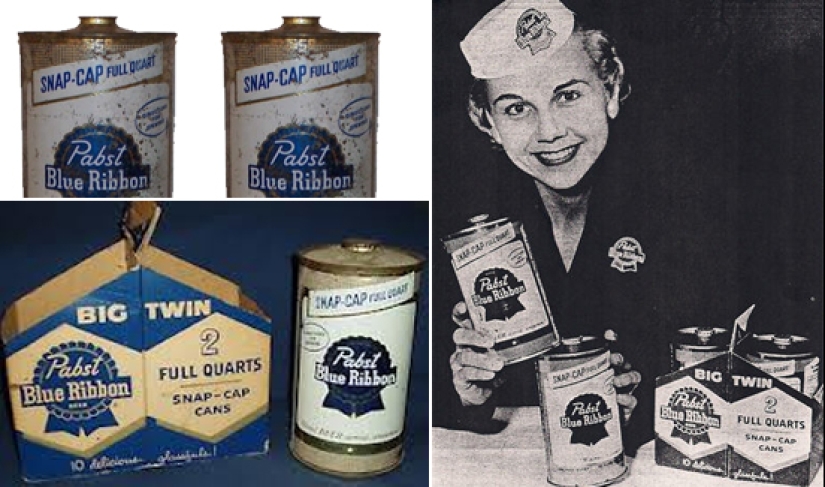
Old-fashioned banks, however, were also in use. Therefore, the question of how to get to beer without using a can opener remained relevant. In 1959, engineer Ermal Fraz found the answer. One day he came to a family picnic, leaving the bottle opener at home. And I suffered so much getting to my favorite drink that when I returned home, I immediately sat down to develop an elementary way of uncorking cans. The fruit of his labors was the valve-opener. Frase took out a patent and sold the rights to the packaging company Alcon. The beer of the Pittsburgh Brewing Co company, the first to enter the market with such a device, made a real sensation. By 1965, more than 75% of all cans were equipped with Frase's invention.
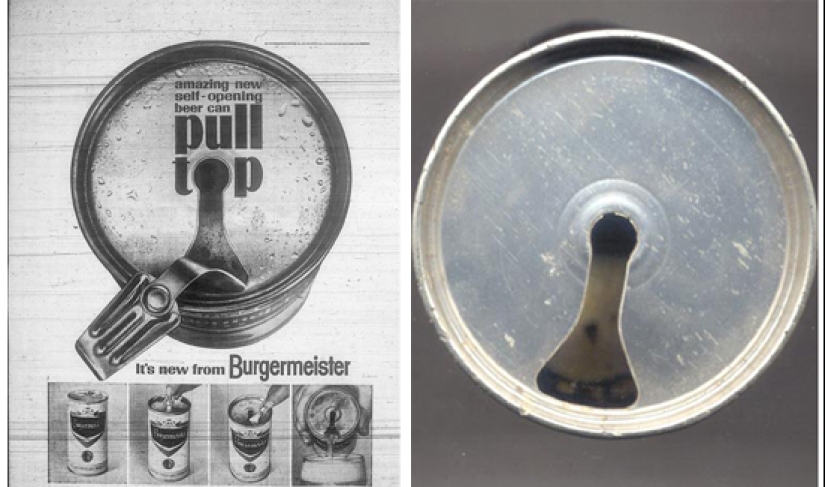
A new attack appeared quite quickly. People threw out these valve-openers wherever they had to, the city authorities were dissatisfied. In addition, cases when consumers swallowed pieces of iron have become more frequent. This was faced by those who preferred to throw them not on the ground, but in a jar.In 1975, engineer Daniel Kudzik came up with a variant of the petal, which remained on the lid after opening. In fact, nowadays banks are made almost the same as Kudzik suggested.

Recent articles

It's high time to admit that this whole hipster idea has gone too far. The concept has become so popular that even restaurants have ...

There is a perception that people only use 10% of their brain potential. But the heroes of our review, apparently, found a way to ...

New Year's is a time to surprise and delight loved ones not only with gifts but also with a unique presentation of the holiday ...